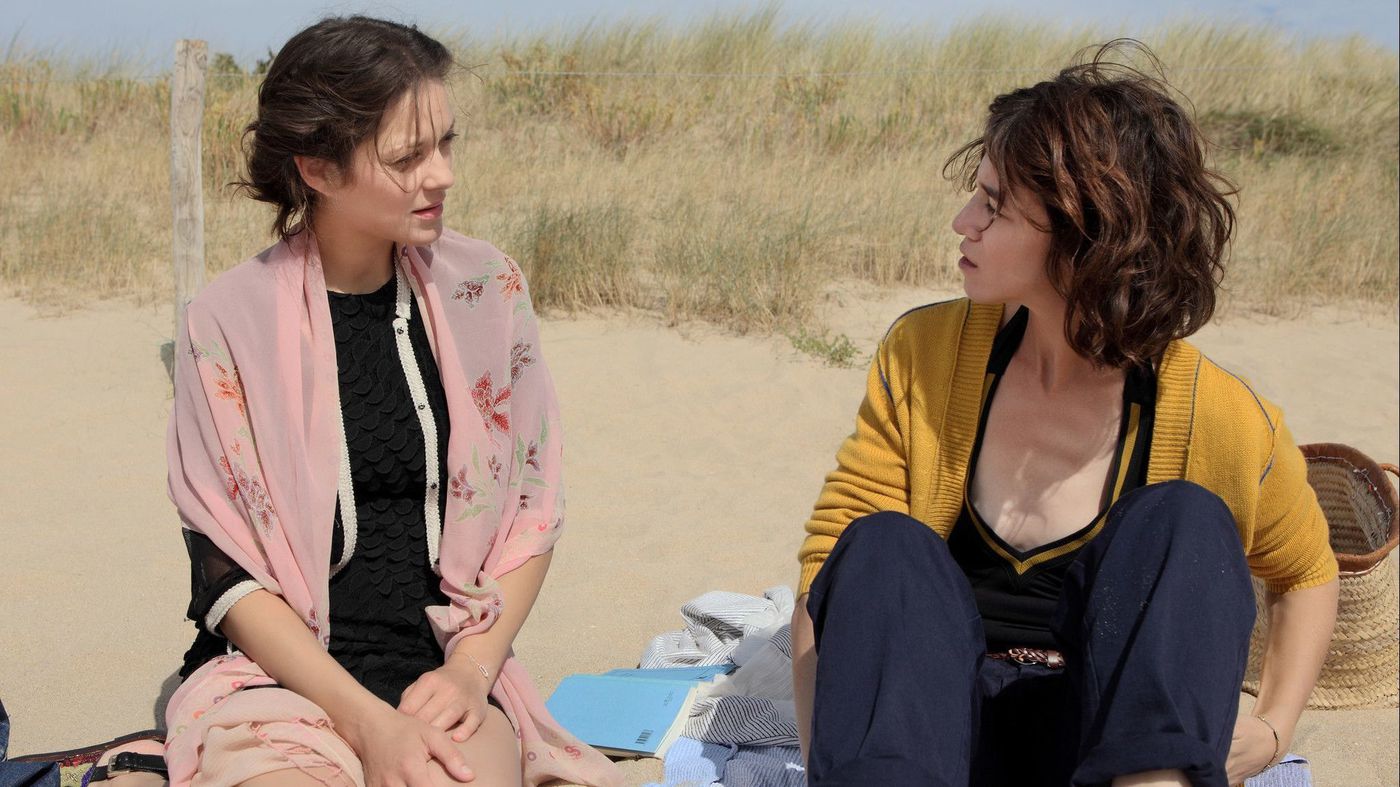In his great film “8 1/2,” Federico Fellini depicts a director who is struggling to make his next movie. At the beginning of the film, he dreams he is trapped inside of a locked car. Somehow, he manages to crawl out of it, and he finds himself floating above the material world. His flight is short-lived, however, because his lawyer manages to lasso him with a rope and pull him down from the heavens. Then, the director awakens with a cry. In this three-minute, nearly silent sequence, Fellini captures the tribulations an artist faces as he goes through his process, the ecstasy he experiences when he finally arrives at the moment of creation and the prosaic elements of his craft that weigh him down.
Like Fellini’s “8 1/2,” Arnaud Desplechin’s new film, “Ismael’s Ghosts,” features a protagonist who is a frustrated filmmaker. Ismael also suffers from nightmares, and he has his own demons to confront. He is estranged from his brother, Ivan. He does not care very much about his girlfriend, Sylvia, or his distraught father-in-law, Henri. His wife, Carlotta, mysteriously disappeared 21 years ago, and she has suddenly returned. As he prepares to create a new film, he must face these ghosts. Unfortunately, none of Ismael’s ghosts or nightmares is as inventive as Fellini’s. In telling Ismael’s story, he relies on melodramatic clichés. Therefore, “Ismael’s Ghosts” seems more like a soap opera episode than a profound meditation on the filmmaker’s effort to produce new work.
If “Ismael’s Ghosts” is a soap opera, however, it is a soap opera full of powerful performances. Mathieu Amalric portrays Ismael not just as a tragic artist, but as a disturbed, haunted man. Desplechin uses close-ups to highlight the subtlety and complexity of Amalric’s work. Ismael is often enraged. As he violently fights his inability to conquer the phantoms of the past, we see Amalric’s eyes, inflamed with both passion and terror. At various points in the film, Ismael is also reflective. In these more meditative moments, we watch Amalric become still, filled with eeriness.
Charlotte Gainsbourg and Marion Cotillard’s performances are just as compelling as Amalric’s. Gainsbourg plays Sylvia, Ismael’s partner. Although Ismael is completely dependent on Sylvia, he takes her for granted. Gainsbourg’s performance is multifaceted. She is able to show that Sylvia is suffering from Ismael’s neglect, but she also conveys that Sylvia loves him deeply. Cotillard portrays Ismael’s former wife and Sylvia’s rival, Carlotta. She disappeared suddenly, but now she has returned to disrupt Ismael’s comfortable existence. Cotillard calls attention to Carlotta’s contradictions. Carlotta seems genuine when she tells Ismael she wanted to come back long ago. Still, Cotillard ensures that there is always an aura of mystery about her. This combination of earnestness and inscrutability makes Carlotta a truly disquieting presence in the film.
Yet, for all her skill, Cotillard cannot convincingly deliver lines like “I’ve come to take my man back. You can live without him. You won’t be unhappy.” This dialogue is anything but nuanced. It would not be out of place in an episode of “Dynasty.” Indeed, Desplechin is never able to move past the sensational elements of the story. In fact, he emphasizes them by using cinematic techniques commonly found in soap operas. He relies on sudden flashbacks to illuminate the past. To enhance the pathos of a scene, he will slowly zoom in on characters’ faces. He keeps cutting between various characters, just as a soap opera moves between plots.
The screenplay is also suffused with hackneyed soap opera storylines. Not only does Carlotta emerge from the nether, but Ismael’s brother, long thought to be dead, is found alive. Sylvia must make a choice between staying with Ismael and caring for her frail, handicapped brother. Ismael sleeps with Carlotta, and she hopes that they can have a baby together even though they are past their primes. To make matters more melodramatic, Ismael is working on a film about a drug-addicted spy operating out of a Tajikistani prison. Perhaps an artist’s process is as replete with drama and emotion as a soap opera. Still, why would Ismael want to create anything if his reality is this exciting?
Ismael’s dreams are also redolent of soap opera plot devices. Most of them concentrate on the difficulties of creating art. He complains about the obstacles he must overcome as a filmmaker. In some sense, the sentiments Ismael expresses are closer to those in “Dynasty” than Fellini’s “8 1/2.” Just as the rich women in the soap opera are miserable despite their money, Ismael seems bereft because he is an artist. In discussing filmmaking, Fellini fused the artist’s anguish with his eventual exhilaration. There doesn’t seem to be any joy in making films for Ismael. He is simply despondent.
In one of these dreams, Ismael reflects that the job of the filmmaker is to disappear behind the camera and let his actors command the screen. Desplechin certainly allows Amalric, Gainsbourg and Cotillard to deliver accomplished performances. Still, he doesn’t effortlessly disappear, but instead is present, buried in an avalanche of soap opera cliché.
Contact Amir Abou-Jaoude at amir2 ‘at’ stanford.edu.
